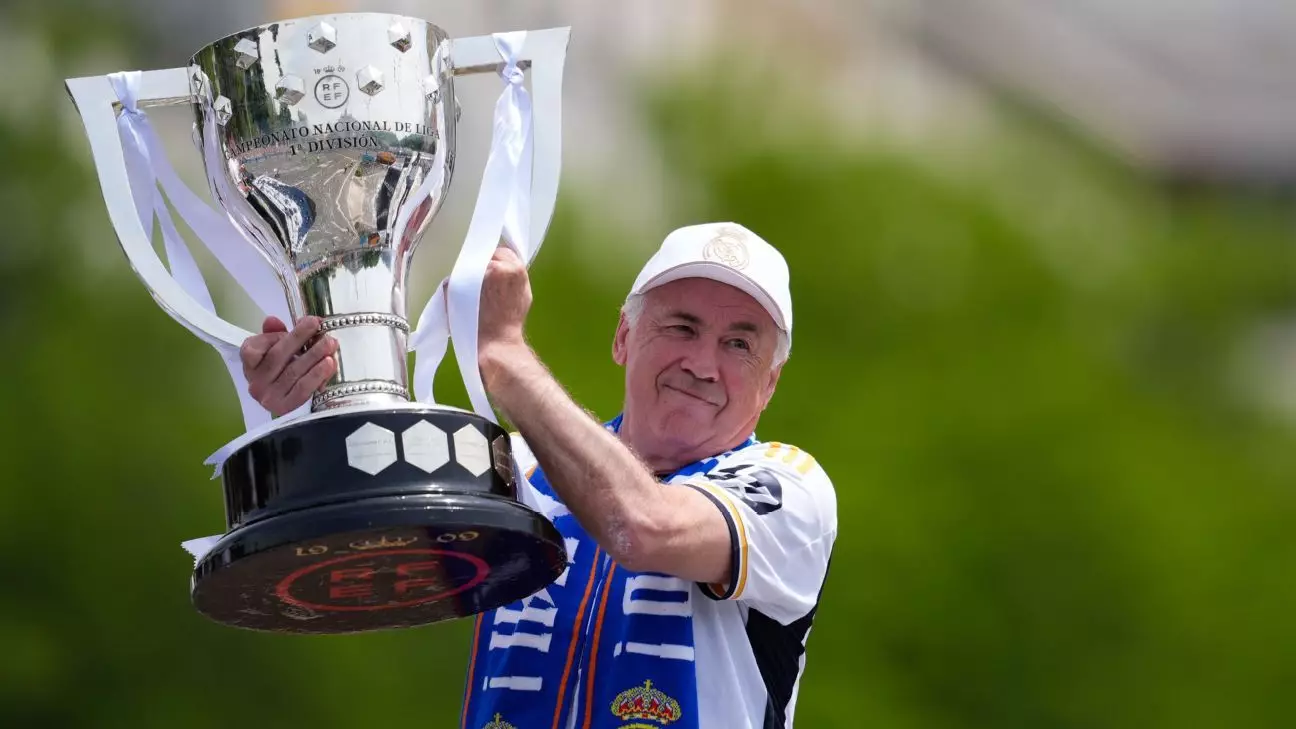Carlo Ancelotti has etched his name into the annals of football history as the most accomplished coach in Real Madrid’s illustrious past. This milestone was solidified on a remarkable Wednesday when Real Madrid triumphed over Pachuca with a commanding 3-0 victory in the FIFA Intercontinental Cup final, bringing Ancelotti’s trophy count to an astounding 15. This feat not only cements Ancelotti’s legacy at one of football’s most successful clubs, but it also exemplifies his tactical acumen and his unique ability to nurture talent.
The significance of Ancelotti’s achievement cannot be overstated. Across two spells in charge of the Los Blancos—first from 2013 to 2015 and then returning in 2021—he has orchestrated an impressive collection of trophies. This includes three UEFA Champions League titles, two La Liga championships, and two Copa del Rey trophies, among others. In doing so, he surpassed Miguel Muñoz, a legendary figure who previously held the record with 14 trophies from his tenure that lasted from 1960 to 1974.
Muñoz’s legacy was built on a foundation of dominance in the domestic league and early European success, including two European Cups. Ancelotti, however, has not only mirrored this success but has expanded its boundaries. His achievements highlight not just a preference for winning but a sustained excellence that has seen Real Madrid remain at the sharp end of both Spanish and European football.
Ancelotti’s philosophy is rooted in adaptability and player empowerment. Following the victory over Pachuca, he reflected on the significant control the team exercised over the match, emphasizing the importance of quality and attitude. His tactical decisions have consistently brought out the best in players like Vinícius Júnior and Rodrygo, both of whom have contributed crucial goals during this campaign.
Vinícius Jr., in his post-match comments, lauded Ancelotti’s ability to allow players the creative freedom to express themselves. Additionally, Fede Valverde echoed these sentiments, highlighting how Ancelotti’s guidance has been central to Madrid’s success. Such testimonials underscore the coach’s role not only as a tactician but as a mentor who fosters an environment conducive to innovation and confidence on the pitch.
Ancelotti’s journey is far from over. His next test will come in January when Real Madrid competes in the Spanish Supercopa in Jeddah, Saudi Arabia. The team is set to face Mallorca in the semi-finals, with potential clashes against traditional rivals Barcelona or Athletic Club looming. The prospect of adding to his already enviable trophy haul underscores the continuous pressure and expectation that comes with managing a club of Real Madrid’s stature.
Beyond the immediate success with Real Madrid, Ancelotti’s coaching prowess is underscored by his unique place in the wider landscape of European football. He is the only manager to have won league titles in the so-called ‘big five’ European leagues—Spain, Italy, Germany, England, and France—demonstrating not just versatility but a profound understanding of the game across different cultures and styles.
Furthermore, Ancelotti’s record of winning five UEFA Champions League titles, two with AC Milan and three with Real Madrid, positions him as an unparalleled figure in football management. These accomplishments reflect a career characterized by tactical brilliance and a remarkable ability to build competitive teams underpinned by strong player relationships.
Carlo Ancelotti’s recent achievements with Real Madrid have rightfully placed him among the elite in football coaching. His remarkable accumulation of 15 trophies showcases not only individual brilliance but a collective workforce effort that has defined an era of success. As Ancelotti looks ahead to new competitions in the coming months, the footballing world watches with keen interest, eager to see if this maestro can continue to write a legacy that will resonate through the history books of the sport.

Leave a Reply